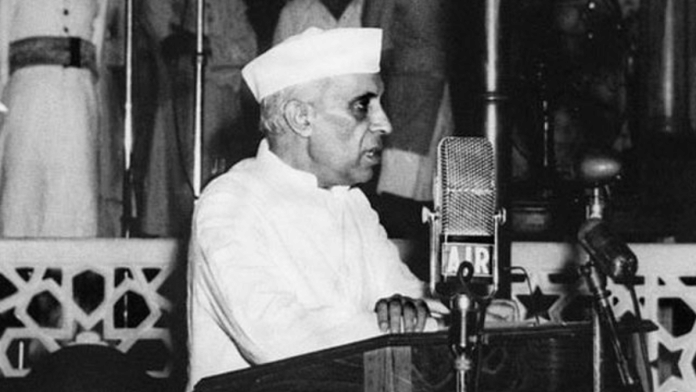Thank you dear subscribers, we are overwhelmed with your response.
Your Turn is a unique section from ThePrint featuring points of view from its subscribers. If you are a subscriber, have a point of view, please send it to us. If not, do subscribe here: https://theprint.in/
Forward Policy was root-cause of the India-China War in 1962 according to Chinese and Neville Maxwell argued the same in his 1970 book ‘India’s China War’. Jawaharlal Nehru was a scholarly Prime Minister who wrote books (Foreign Policy) and his academic brilliance even still makes Indian education system robust (despite all the severe problems). China attacked India (1962) also because Mao Zedong had grown increasingly jealous of Nehru, the towering world Statesman of all the developing countries. In 2017 Bertil Lintner wrote the book ‘China’s India War’ which portrayed the true picture. Bertil Lintner says that the Forward Policy were a couple of military outpost setup by India and to say (Lintner arguing with Maxwell) that the Forward Policy was the cause of the war is nonsense. Actually between 1959-1961 the Chinese were moving forward as per their two claim lines for Indian Territory. The second claim line of the Chinese did claim more Indian Territory than their first claim line. So, the Forward Policy by Nehru under the supervision and oversight of Intelligence Bureau was setting up of military outpost between these two claim lines. As per International Law the Forward Policy of Nehru was valid as India was laying claim to its perception of Territory as per the Johnson Line (the hook type line outward to the right) in Ladakh’s Aksai Chin. So, in accordance with International Law one should either patrol the area claimed or setup military outpost. India, chose the latter and these were defensive measures meant for observation purpose barely. The decision to go to war had been taken in 1959 by the Chinese (Chinese Communist Party) and preparations for the war had started immediately as Mao Zedong had made up his mind to teach Jawaharlal Nehru a lesson. Jawaharlal Nehru was an idealist alike Mahatma Gandhi. Nehru was a disciple of Mahatma Gandhi and he had seen the power of Gandhi through the instruments of truth and non-violence which after freedom struggle gave birth to Republic of India. Nehru had a dream that since both India and China had been against colonial rule, both were fellow Asian countries, so Nehru wanted friendship, that’s why Nehru felt that for stability in Asia, it was important to have China onboard. Like the Bandung Conference, permanent seat of UNSC (Nehru advocated in 1960 for seat to be given to China) etc emboldened China. Jawaharlal Nehru, his defence minister Krishna Menon believed that not China but Pakistan was the threat and that through diplomacy everything will be handled well. Also, the coterie of advisors on China, who briefed Nehru they were not skilled professional enough to assess the China threat correctly. Also Nehru’s idealism, did not allow the Army to get prepared for war nor did he raise the defence budget. On 20 October 1962 when China started the war on both Indian fronts Ladakh and Arunachal Pradesh, there was nothing India could do except wait for the war to be over on Chinese terms. As the saying goes war is diplomacy by other means. Before the war China took over entire Aksai Chin (38000 square kilometers by building the highway during 1956 which was connecting Xinjing and Tibet) as well as after the war ended on 20 November 1962, China distinctly took another huge chunk of 2500 square kilometers of Indian Territory. Yes, this was all done on count of Mao’s egregious violation of International Law but war does not stop International Relations. As said by O. Butkevych that “Sometimes, it even activates them, becoming a mighty catalyst for the arrival of a new era in international law (as was the case with the Peace of Westphalia, which terminated the Thirty Years’ War and introduced a new historical period for this law, or the rapid development of international law after the Second World War).” Again in 1967, India and China fought a war in the Indian State of Sikkim but this time the Chinese were defeated in the nearly twenty days war as the Indian side had learnt its lessons from 1962 be it artillery etc. Later on in 1987, 2017, 2020 there were near war situations (war was barely avoided). But the fact is that right from 1993 to 2013 India and China signed five peace treaties to avoid war, and in 2020 China threw all these treaties into trash and invaded Indian Territory. As per International Law, since 2020 China is still in belligerent occupation of 1000 square kilometers of Indian Territory (territory claimed by India as per its perception of border), and they did it by multipronged deep intrusions into India’s Ladakh during April 2020. Solution is delimiting borders as territory exist between India and China, because no side has capacity to take through war large territory claimed by each.
These pieces are being published as they have been received – they have not been edited/fact-checked by ThePrint.


